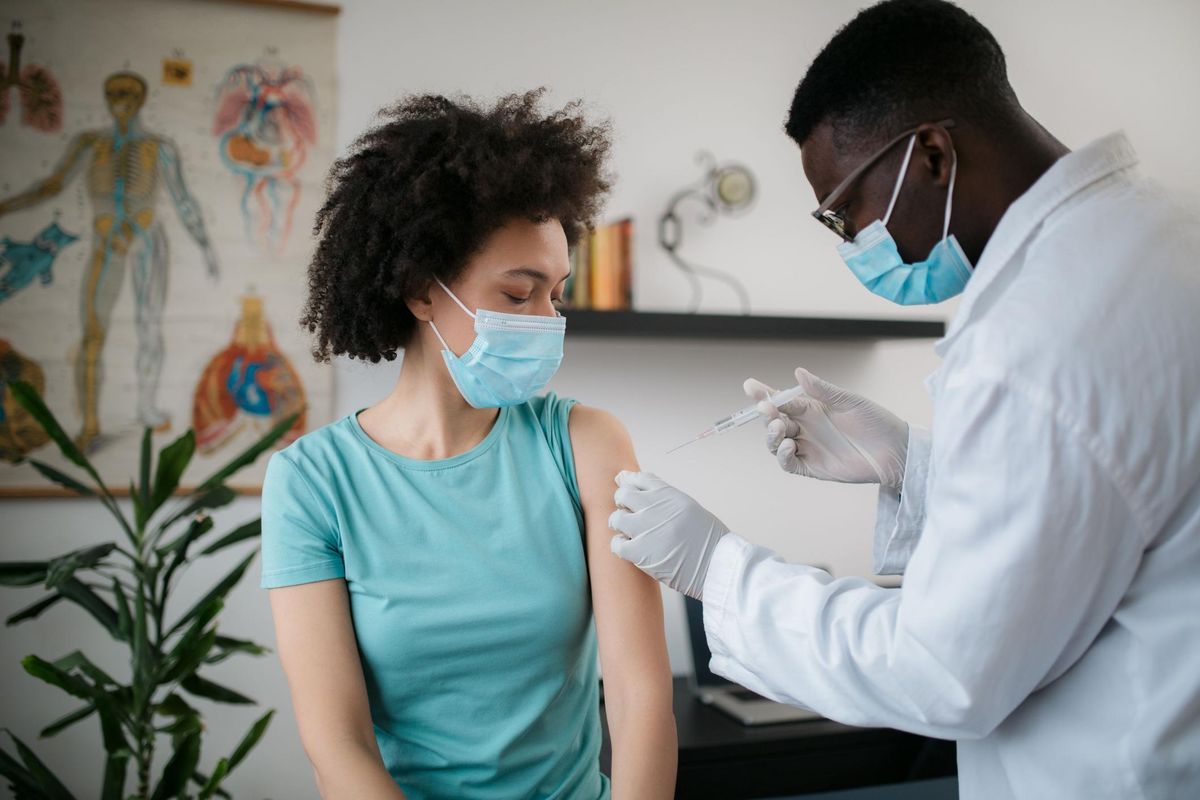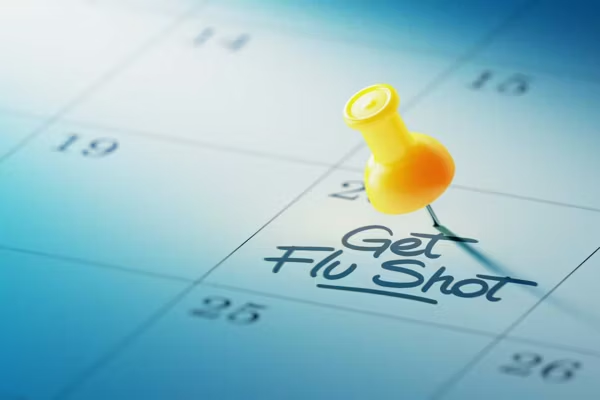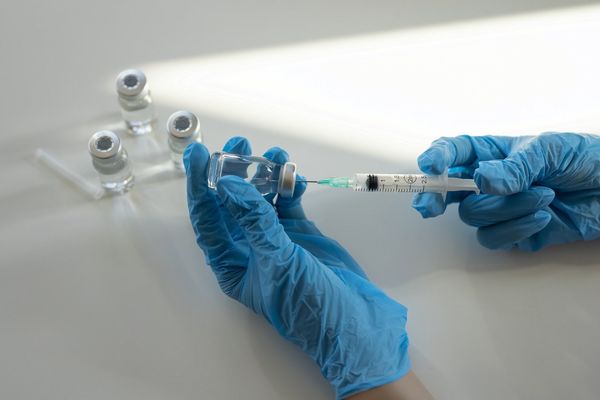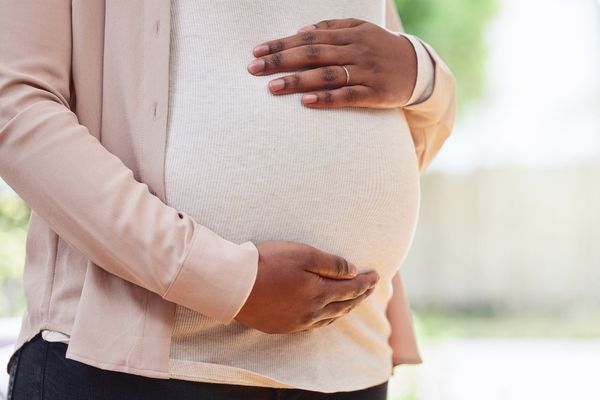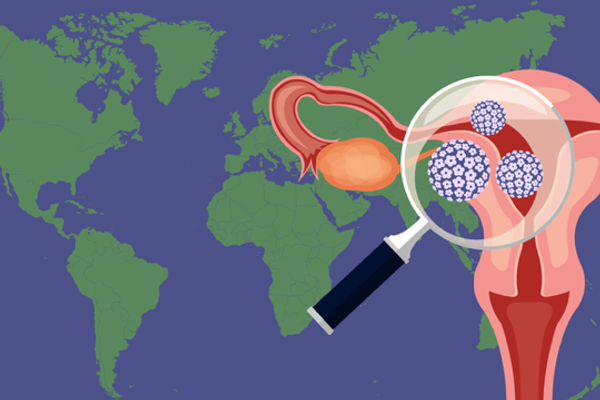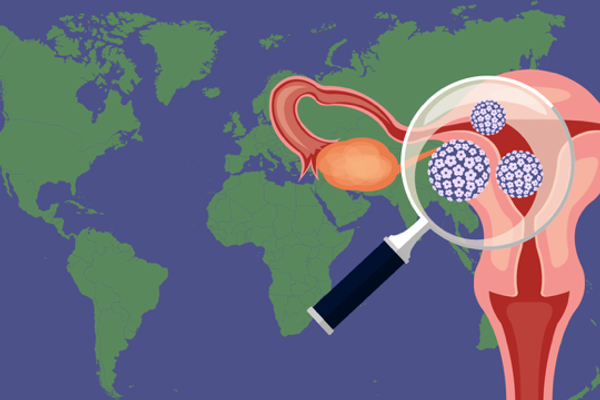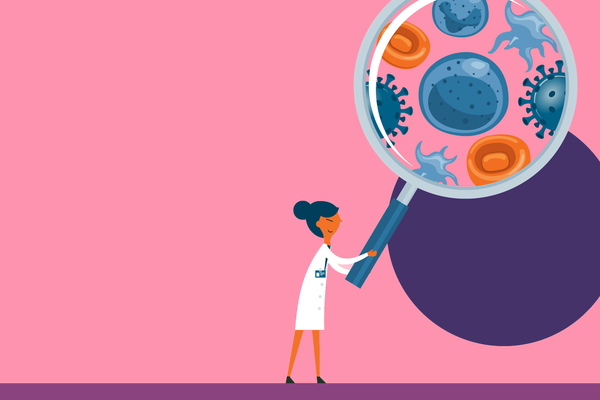As a labor and delivery nurse, Gina Jones knew she'd be among the first Americans to receive the COVID-19 vaccine when it was released last December. Although she planned to be vaccinated, she admitted some apprehension about the process.
"I had similar concerns as most people," said Jones, who is Black. "This vaccine was developed really quickly and there are a lot of unknowns in the side effects and long-term efficacy of it. At the end of the day though, I've seen the devastation of COVID-19 and knew there was only one option to keep myself, my family and my community safe."
Those concerns have been echoed by many who remain hesitant about getting the vaccine, and Black Americans have been the most reluctant, despite a hospitalization rate 3.7 times higher than that of whites and a death rate 2.8 times higher. A January survey from the Kaiser Family Foundation showed that 53% of white adults were willing to be vaccinated "as soon as possible," compared to 42% of Hispanic adults and just 35% of Black adults. The racial breakdown of vaccine administration has also illustrated disparities, as the vaccination rate for Black Americans lags behind other groups.
That's why many Black healthcare providers are taking the lead to address gaps in trust and accessibility to help more Black Americans get vaccinated. Their advocacy includes acknowledging the strained history between the medical profession and the Black community while working to become trusted sources of information for Black patients. They're also bridging physical and digital divides that limit access to vaccination sites and accurate information about the vaccine.
"There's a lot of mistrust because of what's happened in the past with unjust treatment of people of color," said Rachel Villanueva, an OB-GYN with NYU Langone Health and president-elect of the National Medical Association, the largest and oldest organization in the U.S. serving Black healthcare providers and their patients.
"Implicit bias [unconscious beliefs about a group] and racism are still pervasive in health systems today. I think COVID-19 has really opened up the conversation about these issues, and this work will continue to be done long after COVID-19 has gone. We just hope communities of color understand that they're at higher risk for COVID-19 and will take the vaccine."
Addressing historic and systemic bias
U.S. medical history includes multiple examples of people of color being used for experimental purposes without their consent. J. Marion Sims, considered the father of modern gynecology, operated on Black female slaves without anesthesia. The Tuskegee study ran for decades with the promise of syphilis treatment for the Black men enrolled, only to withhold it to examine how the disease progressed. The cells of Henrietta Lacks, a Black woman dying from cervical cancer, were taken without her consent while she was a patient at Johns Hopkins Hospital in 1951. Those cells are still used today for scientific research, including the development of the coronavirus vaccine.
Systemic racism in health care has not gone away — Black patients today still say they feel unheard or ignored by healthcare providers, leading to suboptimal care.
The National Medical Association has its roots in that history. The organization was founded in 1895 for Black healthcare professionals that were excluded from groups like the American Medical Association due to segregation. The NMA continues to represent more than 30,000 Black doctors and the patients they serve and works to improve health outcomes in disadvantaged communities.
Last year, the NMA created a task force to help vet potential COVID-19 vaccines and other therapeutics after expressing concern about political influence on FDA-approved treatments for the virus. The task force worked to address questions and concerns about vaccine safety and ensure that Black Americans were included in clinical trials and in distribution plans.
The Black Women's Health Imperative, a national organization dedicated to improving the health of Black women and girls, has also been at the forefront of health equity efforts during the COVID-19 pandemic. The organization has sponsored virtual conversations with healthcare providers and elected officials on the local and national level and plans to release a COVID-19 vaccine survival guide to encourage more Black women to get vaccinated.
"Black women can play a vital role in this effort as we do in a lot of facets of our life, in society and in this country in general," said Tammy Boyd, chief policy officer and counsel for BWHI. "Providing information and education so we can have those conversations with friends, family and our communities is critical. Black women have also played a key role in not only the vaccine development process, but by taking the vaccine themselves and showing their commitment to building vaccine confidence in the Black community."
Boyd notes the prominent role Black women have played in the fight against COVID-19 from the start. Kizzmekia Corbett, Ph.D. led the team that helped develop the Moderna vaccine and Dr. Marcella Nunez-Smith is chair of President Joe Biden's COVID-19 equity task force. And multiple Black female nurses around the country received media attention for being the first individuals to receive the vaccine in their respective states, helping normalize the vaccination process.
An organic effort
In addition to promoting the vaccine to their patients, many healthcare professionals posted photos and videos of their vaccinations on social media, a grassroots campaign Villanueva and Boyd credit for helping increase trust in Black communities.
Jones, the labor and delivery nurse, was one of the Black healthcare professionals to chronicle her experience on social media.
"I felt relief knowing that a turning point was on the horizon, and I could be one of the people to help usher in this change by simply getting vaccinated," Jones said. "For people hesitant to get the vaccine, I'd ask that they look at the numbers. For so [many people], it is a death sentence. It's our job to take care of each other."

